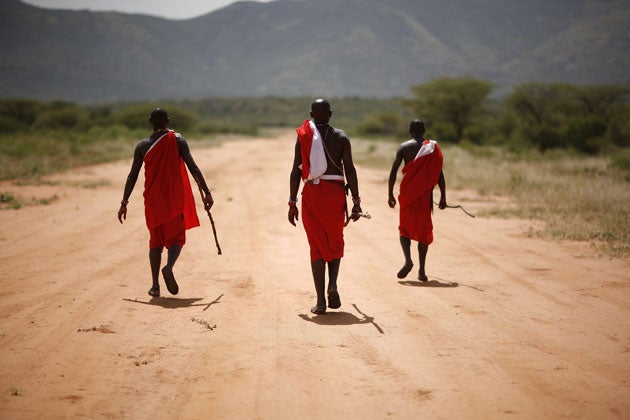Kenya: The Traveller's Survival Kit

GETTING THERE
The main approach for most visitors to Kenya is a direct flight from Heathrow to Nairobi's Jomo Kenyatta airport. British Airways (0844 493 0787; www.ba.com), Kenya Airways (020- 8283 1818; www.kenya-airways.com) and Virgin Atlantic (08705 747 747; www.virgin-atlantic.com) each has daily flights from Heathrow. Other airlines offer connecting services from a range of UK airports, including Air France/KLM, Lufthansa and Emirates.
Alternatively, Mombasa is served by some charter flights from the UK, which are run in conjunction with package holidays.
RED TAPE AND MONEY
Every visitor needs a visa, obtainable on arrival by payment of $50.
American dollar notes, especially low-denomination bills, are extremely useful throughout Kenya, for small purchase and tips. But mainly you will need Shillings, which are best obtained from one of the many competing foreign exchange dealers; they normally have very good rates. Do not change money with individuals in the street.
Credit cards are rarely accepted, except in upmarket establishments.
GETTING AROUND
Within Kenya, a safe and swift way to travel long distances is by air. Almost all domestic flights serve Wilson airport in Nairobi (about 10 miles from the main Jomo Kenyatta airport). They include Blue Sky, Fly540, Tropic Air, Safari Link, and the leading domestic airline, Airkenya. Many of these are run as tourist services, and stops are added or subtracted according to demand. Fares are reasonable.
The historic rail link between Nairobi and Mombasa is not in prime condition, and runs only a few times a week, though the potential for the service is substantial. The main train services of interest to visitors are occasional Sunday specials from Nairobi's handsome railway station to nearby attractions.
Long-distance buses provide efficient and usually safe transport on Kenya's remarkably good road network. They are supplemented by swarms of matatus – small and often very crowded minibuses – and Peugeot estate cars. These vehicles depart when "full", a term defined by the driver.
HEALTH AND SAFETY
Visit a health professional well in advance of your visit. You will need malaria prophylaxis, and should be up-to-date with vaccinations against hepatitis A/B, diphtheria, typhoid, tuberculosis and in some parts of the country, yellow fever. As anywhere, you should take great care not to be bitten by mosquitoes; besides malaria – for which protection is not 100 per cent effective – they spread other dangerous diseases.
For up-to-date advice from the Foreign Office on travel to Kenya, see www.fco.gov.uk. Bear in mind, however, that the vast majority of the 200,000-plus British visitors to Kenya return safely – including the traveller who, it is said, wrote in to her tour operator after the trip as follows: "I had a wonderful holiday in Kenya but I think I should bring to your health and safety department's attention the fact that the animals were not fenced in."
COPING WITH ALTITUDE
If you intend to tackle Mount Kenya – one of the most rewarding climbs anywhere on earth – you need to be in reasonable physical shape, and should enlist a guide and support team.
The following advice should also help: go slowly; use walking poles; take earplugs to help you sleep in refuges; if you can't sleep, at least rest; once you have reached a refuge, don't just plonk yourself down for a cup of tea – spend 15 minutes climbing further up the mountain, to acclimatise; drink twice as much water as you think is necessary; the climb hurts – but the rewards far exceed the pain.
MORE INFORMATION
Kenya Tourist Board (020-7367 0931; www.magicalkenya.com)
Subscribe to Independent Premium to bookmark this article
Want to bookmark your favourite articles and stories to read or reference later? Start your Independent Premium subscription today.

Join our commenting forum
Join thought-provoking conversations, follow other Independent readers and see their replies